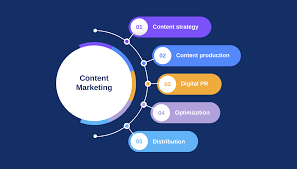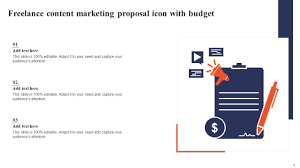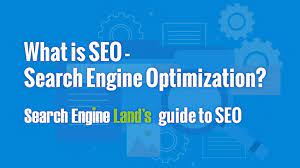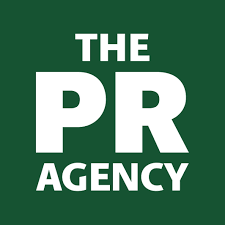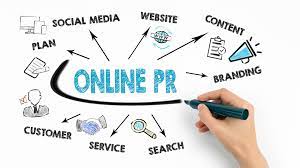Unleashing the Power of Synergy: How Public Relations and Marketing Firms Drive Brand Success
Public Relations and Marketing Firms: Enhancing Brand Success
In today’s fast-paced and competitive business landscape, effective communication and strategic marketing are crucial for companies to thrive. Public relations (PR) and marketing firms play a pivotal role in helping businesses navigate this complex realm, ensuring their brands stand out and resonate with their target audience.
Public relations firms specialize in managing a company’s reputation and building strong relationships with various stakeholders. They employ a range of tactics, such as media relations, crisis management, event planning, and social media engagement, to shape public perception positively. PR professionals understand the importance of crafting compelling narratives that captivate audiences while aligning with the brand’s core values.
On the other hand, marketing firms focus on promoting products or services through targeted campaigns. They employ market research, advertising strategies, digital marketing techniques, and creative content creation to drive brand awareness and generate leads. Marketing professionals excel at understanding consumer behavior and trends to deliver impactful messages that resonate with customers.
The collaboration between PR and marketing firms is a powerful synergy that can elevate a brand’s success. By working together seamlessly, these firms can create comprehensive communication strategies that encompass both traditional PR practices and modern marketing techniques.
One significant advantage of engaging PR and marketing firms is their expertise in leveraging various channels to amplify brand visibility. Whether it’s securing media coverage in reputable publications or executing eye-catching digital campaigns across social media platforms, these firms have the knowledge and resources to optimize exposure for their clients.
Additionally, PR and marketing firms bring fresh perspectives to the table. Their external viewpoint allows them to identify unique angles or opportunities that internal teams may overlook. This outside-in approach helps businesses break through the noise in crowded markets by presenting their products or services in innovative ways.
Moreover, the experience of working with diverse clients across industries equips PR and marketing firms with valuable insights into best practices. They possess an extensive knowledge base built on successful campaigns, industry trends, consumer preferences, and emerging technologies. This knowledge empowers them to develop tailored strategies that are both effective and adaptable to ever-changing market dynamics.
Another benefit of partnering with PR and marketing firms is the cost-effectiveness they offer. Instead of maintaining an in-house team for each function, businesses can tap into the expertise of these external agencies on a project basis or through retainer contracts. This flexibility allows companies to access top-tier talent without the overhead costs associated with permanent staffing.
Ultimately, PR and marketing firms act as trusted advisors and partners, working alongside businesses to achieve their communication objectives. With their strategic guidance, companies can build strong brands, engage with their target audience effectively, and navigate potential crises with confidence.
In conclusion, public relations and marketing firms play a vital role in helping businesses thrive in today’s competitive landscape. Their expertise in reputation management, strategic communication, and brand promotion enables companies to stand out from the crowd. By harnessing the power of PR and marketing synergies, businesses can enhance their brand success and achieve long-term growth.
Commonly Asked Questions about Public Relations and Marketing Firms in the UK
- Who is the biggest PR firm?
- What is PR and marketing firm?
- What is marketing and public relations organizations?
- What PR firms do?
- What is the role of PR in marketing?
Who is the biggest PR firm?
The biggest PR firm in the world is Edelman, based in the United States. Edelman has over 5,000 employees and offices in 65 countries around the world.
What is PR and marketing firm?
A PR and marketing firm is a professional agency that specializes in providing services related to public relations and marketing. These firms offer expertise in managing a company’s reputation, building relationships with stakeholders, and promoting products or services through targeted campaigns.
Public relations (PR) is the practice of managing communication between an organization and its various audiences, including the media, customers, employees, investors, and the general public. PR firms help businesses shape their public image, handle media relations, navigate crisis situations, plan events, and engage with key stakeholders to build trust and positive perception.
Marketing involves activities aimed at promoting products or services to attract customers and generate sales. Marketing firms employ strategies such as market research, advertising, digital marketing techniques, content creation, branding initiatives, and campaign management to increase brand awareness and drive customer engagement.
PR and marketing firms often work together to create comprehensive communication strategies that encompass both traditional PR practices and modern marketing techniques. By collaborating seamlessly, these agencies can optimize brand visibility across various channels while delivering impactful messages that resonate with target audiences.
The expertise of PR and marketing firms lies in their ability to leverage their knowledge of consumer behavior, industry trends, media landscapes, digital platforms, and emerging technologies to develop tailored strategies for their clients. They bring fresh perspectives from working with diverse clients across industries and offer cost-effective solutions by providing access to top-tier talent without the need for permanent staffing.
Overall, PR and marketing firms act as trusted advisors and partners for businesses looking to enhance their communication efforts. They assist companies in achieving their objectives by strategically managing their reputation, engaging with stakeholders effectively, promoting products or services creatively, navigating potential crises confidently, and ultimately driving brand success.
What is marketing and public relations organizations?
Marketing and public relations organizations are professional entities that specialize in providing strategic communication services to businesses and individuals. These organizations help clients effectively promote their products, services, or personal brands to target audiences, while managing their reputation and building positive relationships with stakeholders.
Marketing organizations focus on developing and implementing strategies to create awareness, generate leads, and drive sales for their clients. They employ various tactics such as market research, advertising campaigns, digital marketing techniques, content creation, social media management, and search engine optimization (SEO). The goal is to position the client’s brand in a way that resonates with consumers and influences their purchasing decisions.
Public relations organizations primarily focus on managing the reputation of their clients through strategic communication. They aim to establish strong relationships with the media, customers, employees, investors, and other key stakeholders. Public relations professionals utilize media relations, press releases, crisis management strategies, event planning, community engagement initiatives, thought leadership positioning, and social media management to shape public perception positively.
While marketing organizations primarily concentrate on promoting products or services through targeted campaigns to drive business growth, public relations organizations focus on managing the overall image and reputation of a brand or individual. Both marketing and public relations organizations work together closely to ensure consistent messaging across different communication channels.
By collaborating with marketing and public relations organizations, businesses can benefit from their expertise in crafting compelling narratives that resonate with the target audience while enhancing brand visibility. These organizations provide valuable insights into consumer behavior trends and industry best practices. They also bring fresh perspectives by leveraging their experience working with diverse clients across various sectors.
Marketing and public relations organizations play a crucial role in helping businesses build strong brands by effectively communicating key messages to their target audiences. Their strategic guidance helps companies navigate the complex landscape of modern communication channels while staying relevant in an ever-evolving marketplace.
What PR firms do?
PR firms, or public relations firms, specialize in managing and enhancing the reputation and communication efforts of businesses, organizations, or individuals. They provide a range of services aimed at shaping public perception, building strong relationships with stakeholders, and promoting positive brand image. Here are some key functions and services that PR firms typically offer:
- Media Relations: PR firms excel in establishing and maintaining relationships with journalists, editors, and media outlets. They pitch story ideas, arrange interviews, and secure media coverage to generate positive publicity for their clients.
- Reputation Management: PR firms help businesses manage their reputation by monitoring public sentiment, addressing negative feedback or crises promptly, and implementing strategies to protect and enhance brand image.
- Strategic Communication: PR professionals develop targeted communication strategies aligned with the client’s goals and values. They craft key messages that resonate with the target audience to effectively convey the desired narrative.
- Crisis Communication: When a crisis occurs, PR firms step in to manage communication effectively. They develop crisis management plans, provide guidance on handling media inquiries, and work to minimize reputational damage during challenging times.
- Thought Leadership: PR firms assist clients in positioning themselves as industry experts or thought leaders through strategic content creation, securing speaking engagements at conferences or events, and facilitating media opportunities.
- Social Media Management: With the rise of social media platforms as influential communication channels, PR firms help clients navigate these platforms effectively. They develop social media strategies, create engaging content, manage online communities, and monitor online conversations about the brand.
- Event Planning: PR firms organize events such as product launches, press conferences, trade shows or exhibitions to create opportunities for client engagement with target audiences or stakeholders.
- Stakeholder Engagement: These firms facilitate meaningful connections between businesses/organizations and their stakeholders – including customers, employees, investors/shareholders – through tailored communication initiatives that build trust and loyalty.
- Branding & Messaging: PR professionals assist in developing or refining a client’s brand identity, including brand positioning, messaging, and visual elements. They ensure consistent messaging across various communication channels.
- Measurement & Evaluation: PR firms employ metrics and analytics to measure the effectiveness of their strategies and campaigns. They provide clients with comprehensive reports that demonstrate the impact of their PR efforts.
Overall, PR firms play a crucial role in helping businesses manage their reputation, enhance brand visibility, and effectively communicate with their target audience. Their expertise in strategic communication, media relations, crisis management, and stakeholder engagement is invaluable for building and maintaining a positive public image.
What is the role of PR in marketing?
The role of public relations (PR) in marketing is to enhance and support the overall marketing efforts of a company. While marketing focuses on promoting products or services directly to consumers, PR focuses on managing the company’s reputation, building relationships with stakeholders, and creating a positive brand image.
- Reputation Management: PR plays a crucial role in shaping and maintaining a company’s reputation. It involves monitoring public opinion, addressing any negative perceptions or misconceptions, and highlighting the positive aspects of the brand. By managing how the public perceives the company, PR helps build trust and credibility.
- Media Relations: PR professionals work closely with media outlets to secure positive coverage for their clients. They pitch stories, provide press releases, and arrange interviews or media appearances to generate media attention. This exposure helps increase brand visibility and credibility through third-party endorsements.
- Crisis Management: When a company faces a crisis or negative event, PR steps in to manage the situation effectively. PR professionals develop crisis communication strategies to address issues transparently, control the narrative, and protect the brand’s reputation. Their swift response can help mitigate potential damage and rebuild trust.
- Brand Messaging: PR ensures that consistent messaging is delivered across various communication channels. By crafting compelling narratives aligned with the brand’s values and objectives, PR professionals help establish a clear brand identity that resonates with target audiences.
- Stakeholder Engagement: PR fosters relationships with stakeholders such as customers, employees, investors, community members, and industry influencers. Through strategic communication initiatives like events, partnerships, sponsorships, or community outreach programs, PR helps build strong connections that positively impact brand perception.
- Thought Leadership: PR professionals work closely with executives and subject-matter experts within a company to position them as thought leaders in their industry. They facilitate opportunities for speaking engagements at conferences or industry events and secure placements for guest articles in relevant publications. Establishing thought leadership enhances credibility and builds trust in the brand.
- Integrated Marketing Communications: PR collaborates with marketing teams to ensure consistent messaging and a unified brand voice across all communication channels. By aligning PR and marketing efforts, companies can create a cohesive and impactful brand experience for their target audience.
In summary, PR plays a vital role in marketing by managing reputation, securing media coverage, handling crises, shaping brand messaging, engaging stakeholders, establishing thought leadership, and ensuring integrated communications. By working hand-in-hand with marketing strategies, PR enhances brand perception, credibility, and ultimately supports the achievement of marketing goals.





